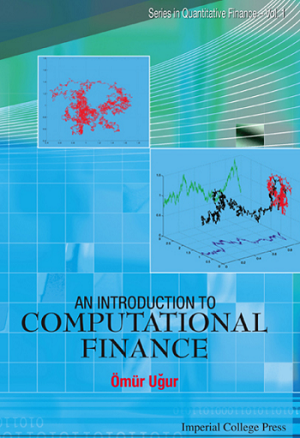Generating Random Numbers; Basic Principles of Monte Carlo; Numerical Schemes for Stochastic Differential Equations; Simulating Financial Models; Jump-Diffusion and Levy Type Models; Simulating Actuarial Models; Markov Chain Monte Carlo Methods.
For further information see the academic catalog: IAM757 - Monte Carlo Methods in Finance and Insurance
Course Objectives
At the end of this course, the student will learn:
- the generation of pseudorandom numbers from a given distribution
- basics of Monte Carlo methods and variance reduction techniques
- the algorithms for numerical solutions of stochastic differential equations, such as Euler-Maruyama and Milstein schemes, and convergence of numerical methods
- the simulation of Lévy processes, in particular, jump-diffusion processes by Euler-Maruyama method for jump-diffusions
- possible fields of applications of continuous-time stochastic processes with continuous and discontinuous paths
- basic principles of Markov chain Monte Carlo methods and Bayesian estimation
Course Learning Outcomes
Student, who passed the course satisfactorily will be able to:
- generate pseudorandom numbers from a given distribution that is commonly used in finance and/or insurance
- apply Monte Carlo methods and variance reduction techniques to approximately integrate, or take, the underlying expectation and moments of random variables
- simulate continuous-time stochastic processes with continuous and discontinuous paths; characterise the convergence and rate of convergence of the numerical schemes used
- apply the methods to models in finance and/or insurance, such as pricing models under Black-Scholes or Heston model settings, interest rate models as well as derivatives, risk measures, pricing longevity products
- learn basics of Markov chain Monte Carlo methods and Bayesian estimation in actuarial mathematics
Instructional Methods
The following instructional methods will be used to achieve the course objectives: lecture, questioning, discussion, group work, simulation.
Tentative Weekly Outline
- Generating Random Numbers
- Generating Random Samples (Numbers) from a Specified Distribution
- Monte Carlo Method and Integration
- Variance Reduction Techniques: Antithetic and Control Variates
- Variance Reduction Techniques: Stratified, Conditional, and Importance Sampling
- Some Applications from Finance and Insurance
- Numerical Schemes for Stochastic Differential Equations: Euler-Maruyama
- Numerical Schemes for Stochastic Differential Equations: Milstein scheme and Lamperti transform
- Convergence Analysis of Numerical Schemes and Extrapolation Methods
- Basics of Multilevel Monte Carlo Method
- Numerical Solutions of Jump-Diffusion Processes
- Simulation of Lévy Processes
- Some Applications from Finance and Insurance
- Basics of Markov Chain Monte Carlo and its Applications
Course Textbook(s)
- R. Korn, E. Korn, G. Kroisandt, Monte Carlo Methods and Models in Finance and Insurance, Chapman & Hall/CRC, 2010
Course Material(s) and Reading(s)
Reading(s)
- P. Glasserman, Monte Carlo Methods in Financial Engineering, Springer, 2003
- G. S. Fishman, Monte Carlo: Concepts, Algorithms, and Applications, Springer, 1996
Supplementary Readings / Resources / E-Resources
Resources
Those who do not have R on their PCs can download it from the site http://www.r-project.org.
A very nice Quick-R website is located on http://www.statmethods.net.
Other
Related to the textbook, check the site http://www.stat.pitt.edu/stoffer/tsa3/R_toot.htm.
